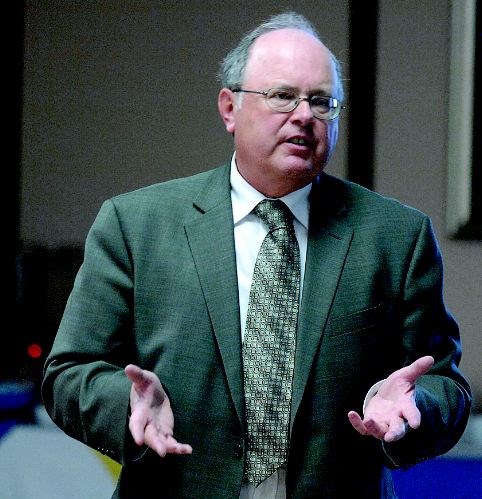The Oil Sands Developers Group added its voice Thursday to the argument that Canada as a whole will benefit from exporting crude from the Alberta oil sands to Asia.
Enbridge, which has proposed the $5.5-billion Northern Gateway pipeline from Alberta to the northwest coast of B.C. at Kitimat, has already been making this argument in favour of its project.
Oil Sands Developer Group president Don Thomson said it's important to get crude from the Alberta oilsands to Asia's growing markets where there is a population of 3 billion people, a strategy that will give alternatives to the more constrained market in the U.S. where there is a population of 300 million.
Virtually all of Canada's oil is shipped to the United States now, and while the U.S. will remain an important export market, finding diversified markets is good for Canada, stressed Thomson.
"Just like with every commodity that Canada produces, we need to access world markets in order to get world price for our commodities," said Thomson, who spoke to a number of groups in Prince George, including a Yellowhead Rotary Club luncheon.
The oilsands group represents nearly 30 companies, including oil industry heavyweights like Conoco Phillips, Shell, Suncor and Syncrude, as well as pipeline companies like Calgary-based Enbridge.
He said Canadian oil would fetch another $4 to $5 a barrel by accessing the Asian market. The increase would go to all Canadian oil, bringing in billions of dollars in additional revenue.
That would also generate more tax revenue for the federal government, which is good for all Canadian communities, including Prince George, said Thomson.
While Prince George and communities west have had little experience with the oil industry, the 1,170-kilometre Enbridge pipeline, which would pass just north of Prince George, would change that.
While the controversial project has business supporters, it has attracted opposition from environmentalists, a growing number of First Nations; and some communities, union and tourism groups.
Thomson, who stressed he wasn't speaking for the Enbridge project, said he believed that pipelines were the accepted way to move oil throughout North America and the world.
"Frankly, there's a billion barrels of crude oil moved in pipelines all over North America. It's well-established, conventional technology," he said.
Thomson argued that growing oilsands production is also important for the Canadian economy for jobs and supplies, including in communities in B.C. He noted that Fort McMurray, Alta., the heart of the oil sands production, does not have a manufacturing base and sources its materials from throughout Canada.
He estimated that 200 to 300 people from Prince George work in the oil sands.
The oil sands are often a target of environmental groups, which claim it produces dirty oil because carbon emissions are higher than for other sources of oil.
Thomson told Prince George audiences that emissions are only eight per cent higher than for other sources of oil to North America.
(The emissions are from a full life-cycle analysis, including burning fuel in a vehicle, which accounts for 80 per cent of greenhouse gas emissions. An earlier Citizen report pegged the difference at 8 to 16.5 per cent).
Thomson said the oil sands producers have not done a good job of telling their side of the story, which is why he was in Prince George.



